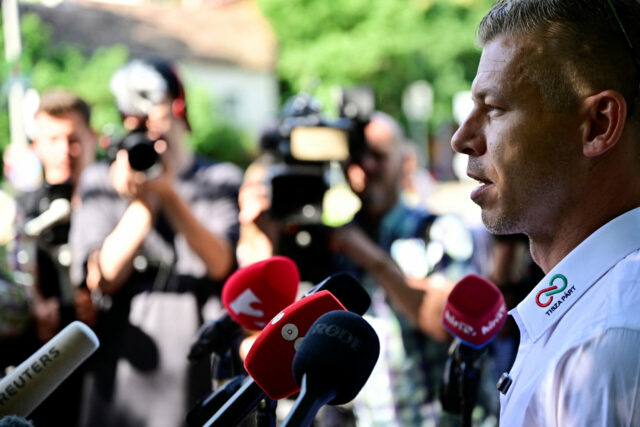South Korea said it would resume loudspeaker broadcasts at the border directed at North Korea. This action has been taken for the first time in six years. It is a response to balloon launches by Pyongyang carrying trash to the South in recent times.
Setting up the speakers
Seoul has been busy. Up to 24 high-power speakers are stacked in large stationary racks as tall as 6 metres (20 ft) and 3 metres wide. They are positioned at different locations just south of the barbed wire fence. This marks the southern edge of the Demilitarized Zone border.
South Korea’s military operates the speaker system and the broadcasts. At maximum output, the speakers blast voice and music more than 20 km (12.4 miles) into North Korea, far enough to reach many soldiers and civilians.
Psychological war against North Korea
Former South Korean President Park Geun-hye said in 2016 the loudspeaker broadcasts were “the most effective form of psychological warfare.” They had encouraged North Koreans to risk their lives and defect to freedom in the South.
Defectors who fled the North have backed up the statement.
South Korea’s military has called the broadcasts “Voice of Freedom.” They have four major themes. Firstly, the superiority of liberal democracy. Secondly, the history of South Korea’s economic success. Thirdly, the justification for reunification. Lastly, the reality of North Korean society.
World news, commentary on the North’s political system and its leader, and weather reports are mixed with K-pop hits. Some North Korean defectors have said this left a lasting impression that these were actually songs with no ideological message.
Reaction from North Korea
North Korea considers criticism of its leader Kim Jong Un as an attack against “supreme dignity.” They have launched an artillery strike across the border in the past.
The broadcasts featured prominently in the joint declaration signed by North Korean leader Kim Jong Un and then-South Korean President Moon Jae-in. This was at a peace summit in 2018. South Korea pledged to cease the operation and dismantle the speakers.
With inputs from Reuters
Traveller, bibliophile and wordsmith with a yen for international relations. A journalist and budding author of short fiction, life is a daily struggle to uncover the latest breaking story while attempting to be Hemingway in the self-same time. Focussed especially on Europe and West Asia, discussing Brexit, the Iran crisis and all matters related is a passion that endures to this day. Believes firmly that life without the written word is a life best not lived. That’s me, Ashwin Ahmad.





